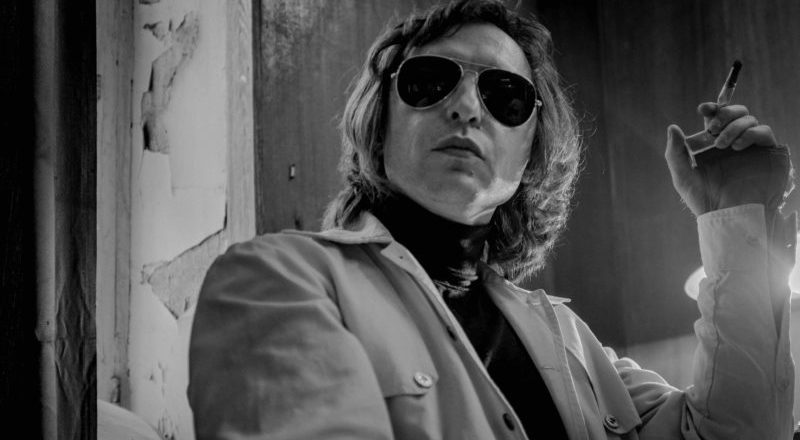INTERVIEW: Early years of Russian rock remembered in ‘Leto’
Photo: Roman Bilyk stars as Mike in the film Leto. Photo courtesy of Gunpowder & Sky / Provided by KWPR with permission.
The burgeoning days of the Russian new wave/rock scene are explored in the new film from director Kirill Serebrennikov. Leto (Summer) follows Viktor Tsoi (Teo Yoo), the lead singer of the Soviet rock band Kino, in the years before Perestroika and the dismantling of the political and economic systems in the Soviet Union. This was a time when the rock scene was largely underground, and music from the West — David Bowie, Lou Reed — needed to be smuggled into the country.
Interestingly, the movie doesn’t focus solely on Tsoi, but rather a cast of characters who circulate around the singer’s life and career.
Serebrennikov, known for The Student and Yuri’s Day, had the movie screen at the Cannes Film Festival in 2018, where it was nominated for the Palme d’Or and took home the Soundtrack Award. The director, however, was unable to attend the film festival because of circumstances surrounding his detainment in Russia.
Mikhail Idov and Lili Idova, husband and wife, wrote the script for Leto, and they recently exchanged emails with Hollywood Soapbox about the film, which is playing in New York City and Los Angeles. Questions and answers have been slightly edited for style.
What was the initial motivation for writing Leto?
Viktor Tsoi is Russia’s most iconic rock star, so there have been a few attempts to get a movie about him off the ground before. The producers, Hype Films, had the rights to his songs, so the initiative was theirs. The amazing part is that they then had the courage to proceed with this take, which is essentially an anti-biopic. Not only isn’t the Tsoi the main character in it, we’re not even using any of his big hits — just the songs written when he was 18-19 years old. Though we’re lifelong fans ourselves, we tried to write the movie in a way that would be interesting to someone who has no idea who any of these people were.
How much research did you have to do about this music scene?
To be honest, not much — this is the music and the scene that we grew up on. We’re about 10-15 years younger than the characters, so we were in our early teens when Tsoi really hit it big. And we are essentially the last generation to have vivid memories of Soviet life, as is Kirill Serebrennikov. Those giant portraits of Brezhnev everywhere, the communal kitchens, the misery of riding the elektrichka suburban train — all of this is eyewitness stuff.
Do you have fond memories of this time period and the early years of Russian new wave / rock?
These are two different things, aren’t they. It’s like asking someone from the UK if they liked the Thatcher years and punk rock. It was a terrible time, but its very hopelessness gave rise to some wonderful music, as often happens.
Did you keep the soundtrack and music of the time in the back of your mind when writing the script?
Yes, obviously. The music forms the backbone of the whole story. Though our first version of the script didn’t have the Western standards like ‘Perfect Day’ or ‘The Passenger’ — this is something that Kirill has come up with, as well as those amazing fantasy sequences that accompany them.
What do you think the movie says about the world we live in today?
We mostly just wanted to write a wistful movie about young bohemian love — but the world can’t help but provide analogies. The film is now forever linked with the circumstances of Kirill’s arrest and the ridiculous case against him. It is now impossible not to think of it as a manifesto of artistic freedom amid a stifling regime. Is ‘dropping out’ of this system, and living as if it’s not there, noble or cowardly? Is it possible to achieve any kind of success without playing the system’s game? These, by the way, are the questions that pertain to capitalism as easily as they do to the Brezhnev-era USSR. And we don’t have any easy answers, but we’re glad to be part of the conversation.
By John Soltes / Publisher / John@HollywoodSoapbox.com
Leto, directed by Kirill Serebrennikov and written by Mikhail Idov and Lili Idova, is now playing in New York City and Los Angeles. Click here for more information.

